I stopped seeing my therapist just before the new year.
It was more about bookkeeping than anything. She’s Out-of-Network, which I didn’t know when I began seeing her. By the time I realized how my billing worked, I’d already spent several hundreds of dollars on her care, toward a deductible I was halfway to meeting, so I stayed —classic sunk cost fallacy.
She also happened to be the best therapist I’ve ever had. We had a great working relationship, new as it was then, and the idea of starting over with someone else felt perilous and emotionally exhausting.
So I ate the cost, called it investing in myself, girl mathed it to make sense. And we did a lot of good work together.
On the outset of 2025, though, the prospect of having to hit my deductible again before getting coverage (just for reimbursements, not upfront!) was something I struggled to financially justify.
Assassination inducing health care system aside, I also reasoned that, by and large, I’m doing really well.
The anxiety that had reached a tipping point when I initiated our sessions has settled; still there, but nestled now alongside a hard-earned self assurance. My inner dialogue is defensive now; the paranoid thoughts have a well trained opposition. Kelsey taught me this. She challenged me to be gentler with myself.
It’s a catch-22 for her; she’s done her job *so well* that I feel comfortable not depending on her any more. Congratulations Kelsey! You’ve lost a patient.
Of course, this decision is also scaffolded by my preexisting, larger conflicting thoughts about indefinite talk therapy.
I’ve known people who say, with a slightly braggadocious air, that they have “graduated” therapy. The sentiment always feels itchy. According to what authority? Against what benchmarks? I think. I’m suddenly very suspicious of their therapist (who, of course, I’ve never met) and of their training (which I have no real right to speak on).
Really, I just think they —both the questionable therapist and my acquaintance— must have much lower standards than me.
The Work is never done, right? Or is that just what Big Therapy wants me to think?
Because on the very real other hand is the risk of being in talk therapy… forever. I have a devil on my shoulder —they’re a Boomer— and they cry “Snowflake!”
Now, I don’t typically cosign name calling, nor do I put any particular weight behind a bitter, dying person’s negative opinions of me, but I am generally scrupulous in my self assessment. Any criticism is worth at least a second glance.*
*With my gentler, self protective filters on, of course. I’m working on it.
Filed right next to the unfounded Snowflake allegations, though, is a real question: When does this end, if ever? Should everyone be in therapy? Forever?
I struggle here, like most things, with the late capitalism of it all.
It is an immense privilege to plop down into a chaise lounge —or, more accurately, be admitted into a Zoom Room— and unload your mental burdens.
I feel the need to disclaim that I think all problems are *real problems* and that deciding who “needs therapy” is a subjective game with so many variables. Roughly:
(Someone’s stressors ÷ (their ability to cope x their access to a professional))
+ probably more I’m not thinking of
It’s also, really, none of my business.
However, if we’re extending the math metaphor, I imagine there is an inverse relationship between those with the most severe problems plaguing their lives —their psyches— and those who actually go to therapy; sitting in soundproofed boxes, clutching tissues to their pearl adorned chests.
Okay, I embellished a bit there, but you get my point. The graph looks like this:
Beyond the aforementioned and chronically fucked healthcare system of it all —the lack of economic accessibility— there’s also the problem of time.
People with what we would colloquially call “real problems” —someone struggling to make rent, the single mother working multiple jobs, a high school dropout living under the everyday violence of systemic racism— are too busy running damage control; just trying to put out fires, to stay afloat. They don’t have 50 minutes on a biweekly basis to sit down and theorize.
It’s within this context that I’ve come to see talk therapy —the space and time and ability to examine my feelings and their origins: god forbid, to consider my childhood— not only as a privilege, but as a luxury.
No pointing fingers! It is a luxury I have indulged in for significant periods of my young, some would say relatively untroubled, life —to much personal growth and self-reflection. But I have to wonder: If I don’t subscribe to the idea of “graduating” therapy, will I just… buy into it forever? And if so, then what’s my goal?
When I zoom out for a moment I begin to think there isn’t one. Or if there is, it’s quite fickle and ephemeral, and that’s kind of the entire point.
If I am unclear about the results I desire, if my goal is just to be “the best version of myself” which has no ceiling, then there are an infinite number of pathways to get there —and a payment plan for each one.
Nip this, tuck that, plump here. Take this pill —this class; buy this cream, wear this mask. Get more done in less time. Optimize your life. Know yourself! Like really, know yourself. Get a therapist. Everyone has a therapist. New trend! Sale. Your dream —body, relationship, life— could be possible with just this one thing.
Spoiler: there’s always a new thing.
In a world that champions the romantic, lifelong journey of becoming better, it is easy to constantly surveil for things that are wrong. Long after my Big-A Anxiety —the thing that catalyzed my going to Kelsey— had largely stabilized, I had no trouble finding smaller anxieties to spend our 50-minute sessions poring over. After all, you are reading my Substack. I can talk.
And it was nice! It was a luxury to dedicate an hour every other week to whatever was plaguing me —no matter how small. It was also a fun exercise in building my comfortability with taking up space; in not feeling guilty for not having anything *that* important to say. The fact that I was paying to inhabit that space, well… everybody starts with training wheels.
But I’ll admit it: sometimes I had to come up with things to say; brainstorm topics to raise. And as my talk therapy did what it was supposed to —grounding and instilling confidence in me— I began to appreciate the other areas of my life I could turn to in moments of high anxiety; in need of support.
Another lucky difference between my situation when I first met Kelsey and now: I have a network of really loving, supportive friends, who all give bang up advice because —wouldn’t you know it!— they’re in therapy, too.
So, prompted by inconvenient insurance circumstances, I’ve started to reposition talk therapy in my life.
Now, I view it as less of an unexamined necessity —just part of my ever-growing expense list for self optimization— and more as a luxury; a security blanket to be taken out in times of need.
I am not writing it off. I will surely revisit it (and Kelsey, if I’m lucky!) It is a type of support I will seek again, depending on the seasons —the inclement weather— of my life. I still don’t think The Work is ever done, but I’m starting to realize talk therapy is a tool, not The Way.
I’m also of the belief that I don’t have to live under a microscope; in a panopticon. I want to divest from the constant self-surveillance, need for improvement, and impetus to buy. I’m a person, not a project.
Even still, with all of these ironclad reasons to set the practice aside for now, saying goodbye to a therapist also, emotionally —rewardingly— feels like saying goodbye to a past version of myself; to all the selves I shed in that space and time with them… I leave, like a deer learning to walk.
It’s impossible to predict the future, but I feel very capable of handling mine with the tools I have accumulated over the years in my respective chaise lounges; the sacred, electronic walls of my Zoom Rooms.
With the help of my therapists, I have cultivated a habit of emotional resilience, a wealth of self-belief.
You know me, I really only ever just need to talk it through. xxx
I feel the need to disclaim here, too, and perhaps obviously, that this thought exercise excludes psychiatry and other psychotherapies, like EMDR, CBT/DBT, and so many more I don’t know of because it is above my pay grade.
Chemical imbalances in one’s brain should be treated and never underestimated. Taking your meds is a nonnegotiable!!!!!!! Okay love you.




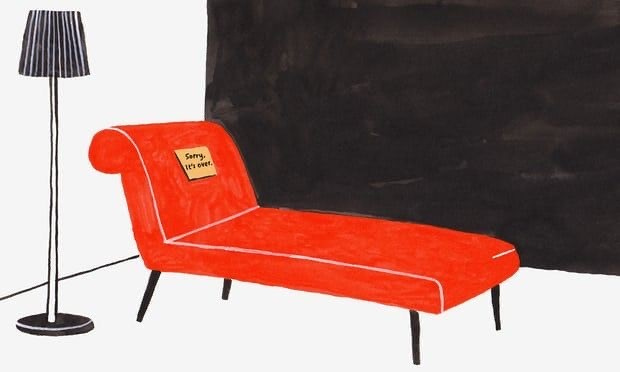
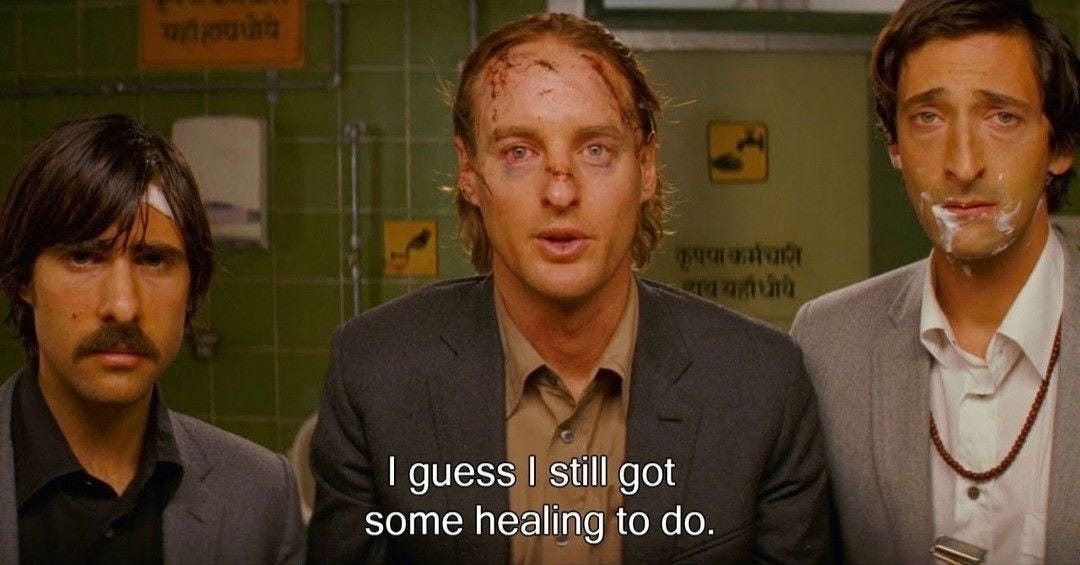
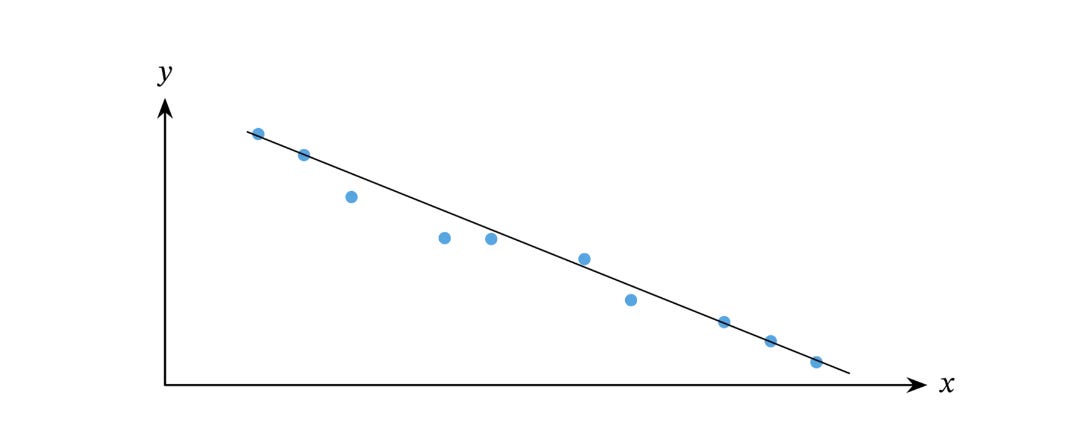
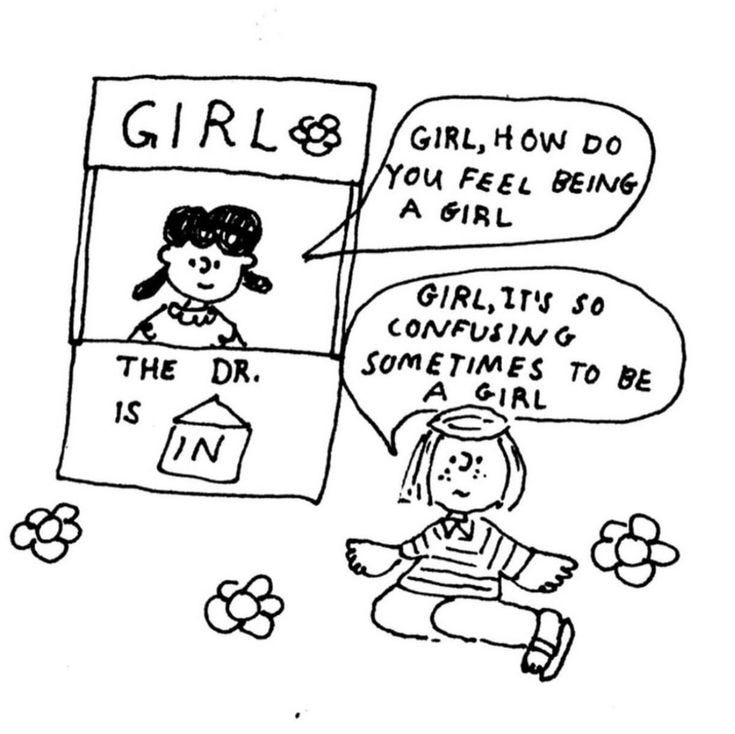
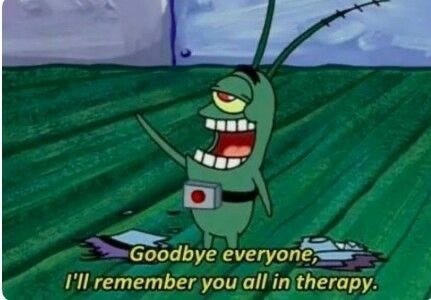
You have such a way with words. A lovely read.
Amazing article (ducky agrees)